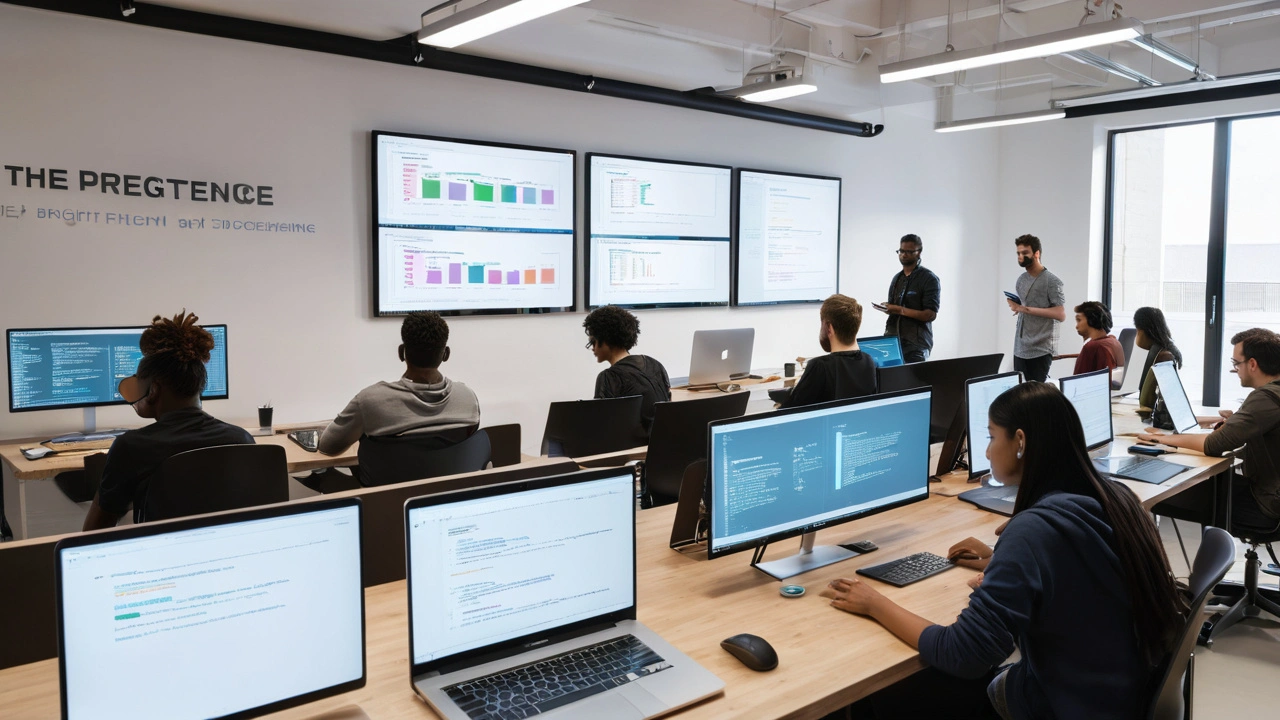Aspiring Developers: Your First Steps to Real Coding Success
If you’re reading this, you probably want to become a developer sometime soon. Good news – you don’t need a PhD or a fancy degree to start. All you need is a clear plan, the right tools, and a habit of consistent practice. Below you’ll find the exact steps that helped dozens of beginners move from “I’m curious” to “I ship code.”
Pick a Language and Stick With It
Don’t chase every new language that pops up. Pick one that matches your goals – Python for AI and data, JavaScript for web, or Java/C# for enterprise apps. Install the official installer, set up a simple IDE like VS Code, and write a "Hello World" in the first hour. That tiny victory builds confidence and shows the environment works.
Build Tiny Projects Every Week
Learning by doing beats watching tutorials forever. Start with 15‑minute challenges: a calculator, a to‑do list, or a random quote generator. Once you finish, add a twist – store data in a file, use an API, or style it with CSS. Each project teaches a new piece of the puzzle without overwhelming you.
Make a habit of writing code daily, even if it’s just 20 minutes. Consistency beats marathon‑style cramming. Keep a simple log: date, what you built, and a one‑sentence takeaway. Over a month you’ll see patterns, spot gaps, and know exactly what to study next.
Use free resources that focus on practice. Sites like freeCodeCamp, Codecademy, or The Odin Project blend short lessons with hands‑on labs. When you hit a roadblock, search the error message – Stack Overflow is a goldmine. Don’t just copy answers; read why a solution works and try to tweak it.
Version control might sound scary, but learning Git early saves headaches later. Create a GitHub repo for each project, commit after every functional change, and write clear commit messages. This habit shows future employers you can manage code responsibly.
Networking isn’t just for seasoned pros. Join a Discord dev channel, attend a local meetup, or follow a few Twitter accounts that share daily code snippets. Asking questions in a community helps you see different approaches and keeps motivation high.
When you feel ready, contribute a tiny fix to an open‑source project. It doesn’t have to be a big feature – correcting a typo in documentation or fixing a small bug is enough. Pull requests give you real‑world feedback and a portfolio piece you can brag about.
Finally, set a realistic milestone for the next three months: finish a portfolio website, build a simple API, or complete a certification. Write it down, share it with a friend, and treat it like a mini‑deadline. Achieving that goal proves you can see a project through from start to finish.
Remember, the journey from aspiring to actual developer is a series of small wins. Pick a language, code daily, build real projects, use Git, and connect with others. Follow these steps, and you’ll turn curiosity into a solid skill set that hiring managers notice. Happy coding!

Essential Coding Tips for Aspiring Game Developers
Aspiring game developers can benefit greatly from targeted coding techniques and skills that can help them create engaging and functional games. This article offers practical tips including language selection, efficient coding practices, debugging strategies, and utilizing game engines effectively. These insights can help newbies navigate the complexities of game development more smoothly.

Step-by-Step Guide for New Programmers
This comprehensive guide aims to walk aspiring developers through the basics of programming. It covers fundamental concepts, practical tips, and essential steps to get started in coding. Dive into learning how to write your first lines of code and gradually advance your skills. Whether you're interested in web development, software engineering, or data science, this article provides a clear path to follow.